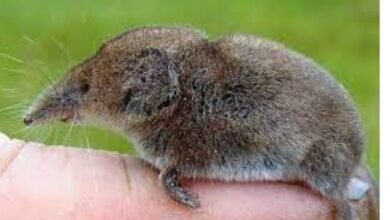How COVID-19 Face Masks Are Wreaking Havoc To The Ecosystem

With the current outbreak of COVID-19, masks have become the new normal around the world. They are the first line of defense against infections in public places, and their role cannot be underestimated. Face masks will continue to be used until governments around the world can achieve their vaccination goals.
Masks have become a huge contaminant, even though they protect us from infection. Masks have ended up in rivers and seas like any other pollution due to improper disposal. Since the start of the COVID-19 pandemic, approximately 7,200 tonnes of medical waste have been produced every day, according to a recent study from the Massachusetts Institute of Technology (MIT). The majority of this garbage is disposable face masks, which ultimately end up in seas and oceans, polluting the ecosystem.
“Recent studies estimate that we use an astounding 129 billion face masks globally every month – that is three million a minute. Most of them are disposable face masks made from plastic microfibers,” Science Daily reported.
Masks injurious to the environment
According to CNBCTV18.com report, many of these masks have become carriers of pollutants such as Microplastics and Nano plastics. Disposable masks are made of plastic and will not break down into smaller particles; instead, they break down into smaller particles.
Although there are no set criteria for properly disposing of masks, we can ensure that these face masks do not become the next plastic disaster for a globe currently dealing with global warming and climate change by implementing a few green alternatives.
Masks made out of fabrics, cloth, cotton, or other washable materials can be utilized few times until the fabric is worn out. A two-layered fabric mask is efficient against the virus and can be washed and sanitized after each use, thereby decreasing the problem of disposable face masks significantly.
N-95 masks
Innovative alternatives, such as reusable N-95 masks made of silicone rubber, have been developed by scientists like Giovanni Traverso.
These masks consist of a filter that can be disinfected or discarded after use. It is sterilized using heat or bleach and is useful for a variety of applications. Reusable N95 masks help save money and reduce waste.
Although many countries face difficulties in this area, simple measures and rigorous enforcement can assist in tackling the problem of face mask disposal.







